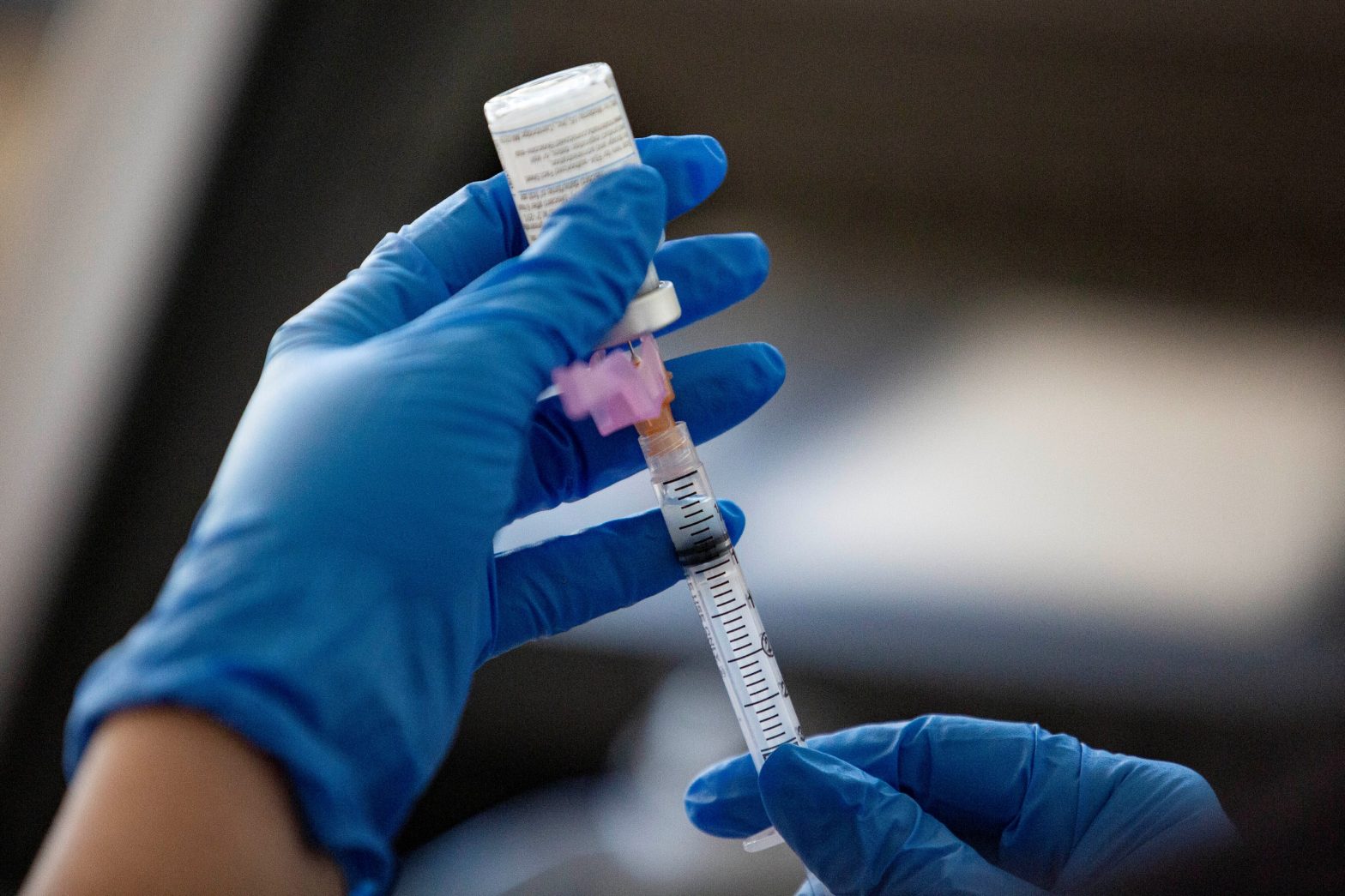EXPLAINER: US Regulator Weighs in on Vaccine Dosing Debate

The first Americans vaccinated against COVID-19 are getting their second dose, while Britain has decided to postpone boosters and focus instead on giving more people a first shot — international differences that are adding to public confusion.
There’s growing debate about whether to change vaccine dosing methods — the time between shots or even the amount in each shot — to stretch scarce supplies and possibly get more people inoculated faster. But the U.S. made clear late Monday that none of those strategies are on the table — because there’s no science backing them.
“Making such changes that are not supported by adequate scientific evidence may ultimately be counterproductive to public health,” concluded a strongly worded statement from the Food and Drug Administration.
And despite all the attention to stretching supplies, the U.S. and other countries are facing logjams in using the doses that already have been raced out. Here are some questions and answers about vaccine dosing:
WHAT VACCINES ARE AVAILABLE?
That differs by country. The U.S. is allowing emergency use of two very similar vaccines, one made by Pfizer and Germany’s BioNTech and the other made by Moderna. Britain is using the Pfizer shot and a different type of vaccine made by AstraZeneca that also has been cleared in India. The European Union is rolling out the Pfizer shot.
Each requires two doses for full protection, either three weeks or four weeks apart depending on the vaccine.
COULD I WAIT LONGER BETWEEN DOSES?
Last week, British health officials decided it was OK to delay the second dose as long as 12 weeks. It was a huge surprise since none of the coronavirus vaccine studies were designed to test such a gap between doses.
British officials said postponing booster doses meant they could give more people at least some protection with a first shot. They said unpublished data from the AstraZeneca study suggested waiting a little longer between doses might be better in the long run but provided no details.
But the big question is how long partial protection from just one dose can last.
“There is no data to demonstrate that protection after the first dose is sustained after 21 days,” Pfizer said.
Monday, the FDA agreed, saying far too few people in both the Pfizer and Moderna vaccine studies missed an on-time booster shot to have enough data to show the strategy might work.
COULD SUPPLY BE STRETCHED BY USING SMALLER DOSES?
That speculation arose when Dr. Moncef Slaoui, who advises the U.S. vaccine program Operation Warp Speed, told CBS’ “Face the Nation” Sunday that there’s some data showing two half-doses of the Moderna vaccine might work.
Slaoui said it shows a lower dose sparked a good immune reaction in people ages 18 to 55, and that officials are discussing the approach with Moderna and the FDA.
Presumably Slaoui was referring to early-stage studies in very small numbers of people that explored which dose to put to a real test. But the FDA allowed emergency use of Moderna’s vaccine based on a 30,000-person study that found two full doses 28 days apart are about 95% protective against COVID-19 — data that’s far more solid than just checking immune reactions.
Again, the FDA late Monday dismissed that dose-stretching idea. The agency said that just like the postponed boosters theory, trying such strategies without data to back them could backfire, “undermining the historic vaccination efforts to protect the population from COVID-19.”
WOULD THESE IDEAS SPEED VACCINATIONS?
It’s far from clear that stretching doses will get them into people’s arms any faster at this point. In the U.S., initial supplies haven’t been used nearly as fast as experts had hoped. Officials expect that to pick up with the holidays over and health workers getting more experience handling the shots.
As of Monday, more than 4.5 million people have been vaccinated out of more than 15 million doses the U.S. government has shipped to the states. That’s not a real-time count but an estimate based on reporting of inoculations that can take days to trickle in. States are deciding who gets the shots, and that varies, although many are giving priority to health care workers and nursing home residents.
If officials did stretch doses “but there’s still not uptake, then it’s not going to make a difference,” U.S. Surgeon General Jerome Adams said Monday on “CBS This Morning.”
CAN MY SECOND DOSE BE A DIFFERENT VACCINE THAN MY FIRST?
Don’t mix and match, says the FDA. There’s no data showing if vaccines can be interchanged.
In fact, that’s why the U.S. government is holding millions of vaccine doses in reserve, until it’s clear that getting more supplies in time for everyone’s booster isn’t a problem.
Recipients get a card with information about which vaccine they received and when to return for the second dose.
___
The Associated Press Health and Science Department receives support from the Howard Hughes Medical Institute’s Department of Science Education. The AP is solely responsible for all content.
























